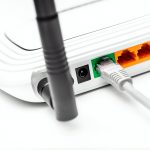End of an Era as ISP BT Finally Scraps UK Dialup Internet Service
BT’s consumer division has confirmed that thousands of customers will be affected when the ISP officially closes their old dialup (narrowband) internet access platform (both the £17.25 per month anytime unmetered option and their pay-as-you-go package) on 1st September 2013.
The operator has already closed down a number of their older services, such as the 50MB of free personal web space that some customers use of have access to (here), and it’s understood that their BTBasic Email (Talk 21) platform will also come to an end on 16th September 2013.
Advertisement
Customers were first notified of the move during May /June 2013. It’s believed that many used the service either as a backup for when their broadband goes down or simply because they lived in remote rural areas where broadband connectivity was either non-existent or too unreliable.
BT has since advised The Telegraph that around 1,000 of their dial-up users live in isolated rural areas where broadband has yet to reach.
Original BT Statement & Dialup FAQ
From 1 September 2013, we’re closing our BT Yahoo! Anytime and Pay-as-you-go (PAYG) dial-up internet services (also known as “narrowband” services).
Most customers now get online with broadband or mobile services, which are generally quicker and cheaper than narrowband connections.
What do I need to do?
From 1 September 2013, you won’t be able to dial in to BT Yahoo! Anytime or Pay-as-you-go.
If you still use your BT dial-up service, please call us on 0800 917 9987 to discuss ways we can help you stay online. We’re open 9am-6pm, Monday to Saturday.
BT aren’t the only ISP to abandon the ancient dial-up platform, which for the vast majority of people has become increasingly redundant due to the low cost and high availability of broadband (both mobile and fixed line solutions alike).
The good news is that many ISPs, including BT’s sibling PlusNet, still support cheaper unmetered and pay-as-you-go dial-up services (we list many others here and here). But dial-up remains essential for the small number of people whom cannot get any form of broadband connectivity (the CLA claims that 15-20% of people who live in rural areas do not have access to fixed line broadband).
Advertisement
According to the Government’s Office for National Statistics (ONS), in 2006 some 31% of households made use of a dial-up connection over a standard telephone line. Seven years on and dial-up Internet has almost entirely disappeared, with less than 1% of households still connecting this way.
At a certain point the costs of maintaining support for an older service can outweigh the profit it generates, which often makes older platforms difficult to sustain. At least there are still alternatives to BT’s dial-up.
Mark is a professional technology writer, IT consultant and computer engineer from Dorset (England), he also founded ISPreview in 1999 and enjoys analysing the latest telecoms and broadband developments. Find me on X (Twitter), Mastodon, Facebook, BlueSky, Threads.net and Linkedin.
« UK ISP Etico Solutions Escapes Ofcom Fine for Broadband Migration Woes
















































Comments are closed